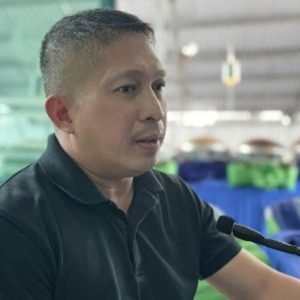
Dear PAO,
May I be enlightened as to the meaning of a field personnel in our employment laws? Are bus drivers included in such and so considered to be unsupervised employee? If so, aren’t they entitled to service incentive leave?
Marilyn
Dear Marilyn,
For brevity, permit me to jointly discuss the answers to your questions, which are interrelated. Please be advised of the provisions of Presidential Decree 442 of 1974, as amended and renumbered, otherwise known as the Labor Code of the Philippines. In the said law, field personnel are defined and the right to service incentive leave is provided, viz.:
“Article 82. Coverage. – The provisions of this Title shall apply to employees in all establishments and undertakings whether for profit or not, but not to government employees, managerial employees, field personnel, members of the family of the employer who are dependent on him for support, domestic helpers, persons in the personal service of another, and workers who are paid by results as determined by the Secretary of Labor in appropriate regulations. x x x
“‘Field personnel’ shall refer to non-agricultural employees who regularly perform their duties away from the principal place of business or branch office of the employer and whose actual hours of work in the field cannot be determined with reasonable certainty.
“xxx
“Article. 95. Right to Service Incentive Leave. – (a) Every employee who has rendered at least one year of service shall be entitled to a yearly service incentive leave of five days with pay. x x x.”
Book III, Rule V, Section 1 of the Omnibus Rules Implementing the Labor Code further provides:
“RULE V
“Service Incentive Leave
“Section 1. Coverage. – This rule shall apply to all employees except:
“x x x
“(d) Field personnel and other employees whose performance is unsupervised by the employer including those who are engaged on task or contract basis, purely commission basis, or those who are paid in a fixed amount for performing work irrespective of the time consumed in the performance thereof.” (Emphasis and Underscoring Supplied)
The foregoing dictates the rule that, generally, an employee who has rendered at least one year of service shall be entitled to a yearly service incentive leave of five days with pay. However, employees classified as “field personnel” are not covered by such rule.
This brings us to your question: Is a bus driver classified as a field personnel and thus, not entitled to service incentive leave?
In the case of Auto Bus Transport Systems, Inc. v. Bautista (GR 156367, May 16, 2005) penned by Justice Minita Chico-Nazario, the Supreme Court elucidated the meaning of a field personnel, and ruled that bus drivers and/or conductors are not field personnel and are entitled to service incentive leave, thus:
“At this point, it is necessary to stress that the definition of a ‘field personnel’ is not merely concerned with the location where the employee regularly performs his duties but also with the fact that the employee’s performance is unsupervised by the employer. As discussed above, field personnel are those who regularly perform their duties away from the principal place of business of the employer and whose actual hours of work in the field cannot be determined with reasonable certainty. Thus, in order to conclude whether an employee is a field employee, it is also necessary to ascertain if actual hours of work in the field can be determined with reasonable certainty by the employer. In so doing, an inquiry must be made as to whether or not the employee’s time and performance are constantly supervised by the employer.
“As observed by the Labor Arbiter and concurred in by the Court of Appeals:
“It is of judicial notice that along the routes that are plied by these bus companies, there are its inspectors assigned at strategic places who board the bus and inspect the passengers, the punched tickets, and the conductor’s reports. There is also the mandatory once-a-week car barn or shop day, where the bus is regularly checked as to its mechanical, electrical, and hydraulic aspects, whether or not there are problems thereon as reported by the driver and/or conductor. They too, must be at specific place as [sic] specified time, as they generally observe prompt departure and arrival from their point of origin to their point of destination. In each and every depot, there is always the Dispatcher whose function is precisely to see to it that the bus and its crew leave the premises at specific times and arrive at the estimated proper time. These are present in the case at bar. The driver, the complainant herein, was therefore under constant supervision while in the performance of this work. He cannot be considered field personnel.
“We agree in the above disquisition. Therefore, as correctly concluded by the appellate court, respondent is not field personnel but a regular employee who performs tasks usually necessary and desirable to the usual trade of petitioner’s business. Accordingly, respondent is entitled to the grant of service incentive leave.”
Therefore, considering the cited laws and jurisprudence — the classification of field personnel is not merely concerned with the location where the employee regularly performs his or her duties, but more so with the fact that the employee’s performance is unsupervised by the employer.
Applying the above-mentioned definition, bus drivers are not considered as field personnel given the fact that they remain under constant supervision while in the performance of their work as such. To reiterate, bus drivers are required to be at a specific place at a specified time, as they generally observe prompt departure and arrival from their point of origin to their point of destination. As such, the employee bus driver’s time and performance are constantly supervised by the employer, much like any other regular employee. As such, bus drivers are entitled to service incentive leave.
We hope that we were able to answer your queries. Please be reminded that this advice is based solely on the facts you have narrated and our appreciation of the same. Our opinion may vary when other facts are changed or elaborated.
Editor’s note: Dear PAO is a daily column of the Public Attorney’s Office. Questions for Chief Acosta may be sent to [email protected]






